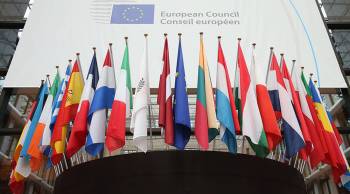Why the EU and the U.S. target different individuals
The European Union today slapped sanctions on 15 more people it accuses of aggravating the crisis in Ukraine. This follows yesterday’s move by the U.S. targeting another seven individuals and 17 companies. This may suggest a degree of coordination between the U.S. and Europe — a kind of one-two punch. But look a little closer, and you’ll see a big difference between the American and the European measures.
The EU has now imposed travel bans and asset freezes on a total of 48 people, and all of them have one thing in common: They’re all directly implicated in the Ukrainian crisis. That’s not the case with the U.S. sanctions.
“The American approach has been much more targeted on Mr. Putin’s inner circle, and on businesses that are believed to be controlled by those individuals,” says John Lough, Associate Fellow at the Chatham House think tank in London.
Take one of the principal victims of the American asset freeze announced on Monday: Igor Sechin, head of the Russian energy giant Rosneft. He is not believed to have been involved in the alleged attempt to destabilize Ukraine. But he is a very close ally of President Putin .
Meanwhile the Europeans today penalized – among others – several Ukrainian separatists and the head of Russian military intelligence.
“You could say the Europeans are pussy-footing around in the sense that they are being more legalistic. They are going after the instruments of this policy rather than going for the most sensitive area of the Russian elite, the people on whom President Putin depends,” says Nick Redman of the International Institute for Strategic Studies.
The softer European approach is not surprising. The EU does ten times as much trade with Russia as the US does. Europe also depends on Russia for 30 percent of its natural gas. Redman says don’t expect the Europeans to hit the Russians where it really hurts – say in the energy sector – for fear of Russian retaliation.
“Obviously sanctions that would be more effective and would go further, would impose costs on the imposing nations,” he says.
There’s a lot happening in the world. Through it all, Marketplace is here for you.
You rely on Marketplace to break down the world’s events and tell you how it affects you in a fact-based, approachable way. We rely on your financial support to keep making that possible.
Your donation today powers the independent journalism that you rely on. For just $5/month, you can help sustain Marketplace so we can keep reporting on the things that matter to you.


















